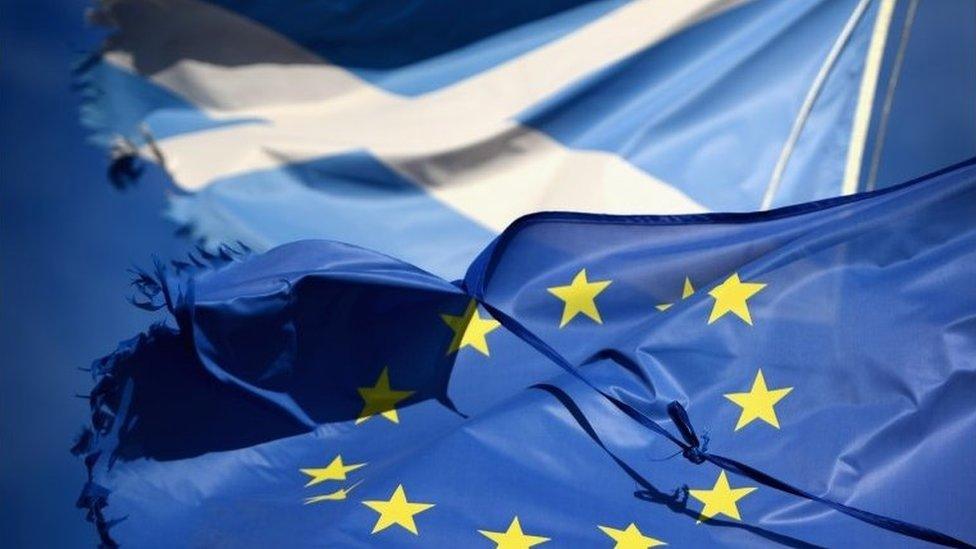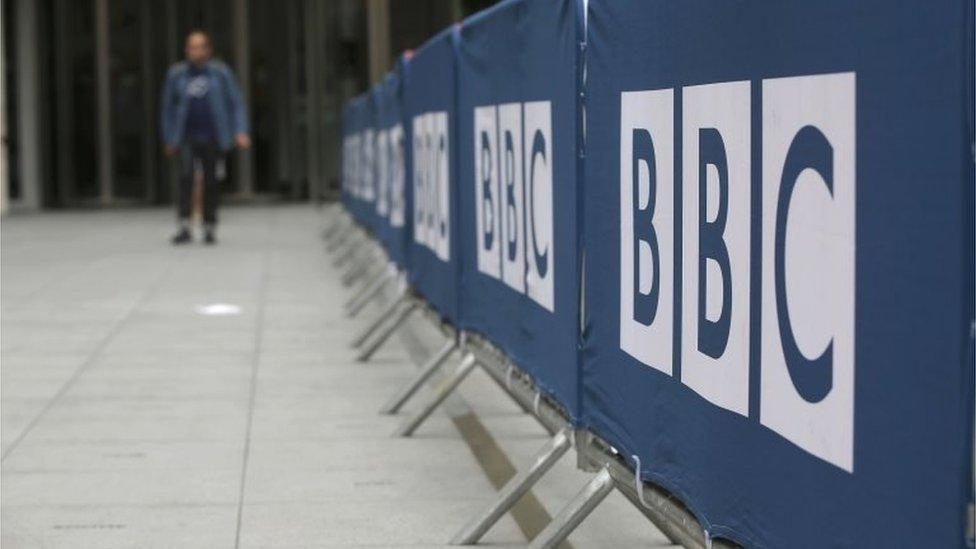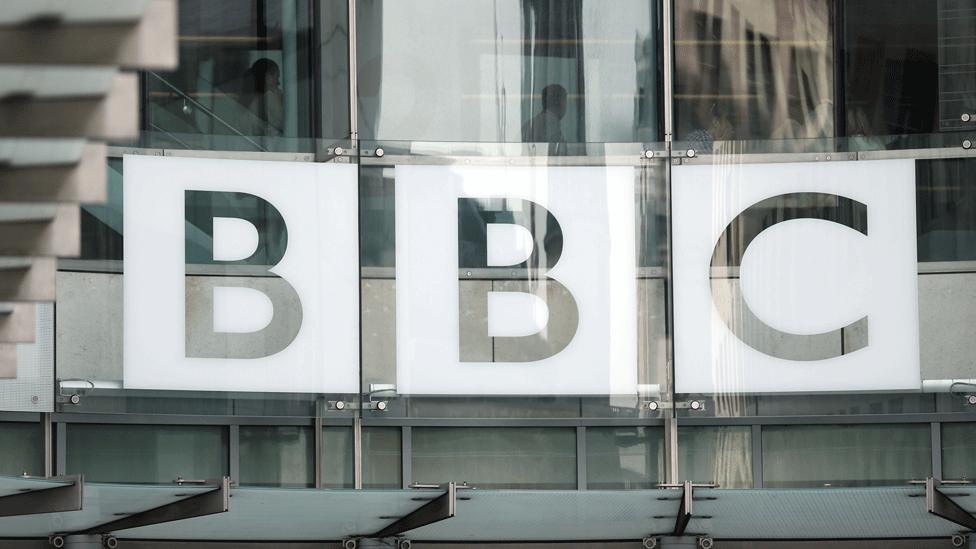June date for EU referendum looks likely
- Published

Fancy a dual democratic exercise? That may well be coming your way as it looks increasingly likely that the referendum on EU membership will be held in June, not long after the Holyrood elections in May.
Chatting to folk who need to know these things produced the verdict that such an outcome was now "probable", rather than possible.
Plus of course we now have the Secretary of State, David Mundell, saying that there are good reasons for a June electoral test - and, in his view, no germane counter opinions.
A bit more on that emerged from a political debate I chaired at Dundee University last night, hosted by the Students Association.
We had four leaders - Nicola Sturgeon, Kezia Dugdale, Willie Rennie and Patrick Harvie. The role of Ruth Davidson was ably portrayed by Alex Johnstone MSP.
Substantive progress
Mr Johnstone suggested that it was vital to hold the EU ballot in June. His argument was that any deal which emerges from EU negotiations in February needs to be banked immediately via a plebiscite. Otherwise it would risk breaking apart.
Incidentally, Mr Johnstone went on to castigate the EU as a "failing" institution - but would not carry that through into arguing at this stage for exit. He indicated, however, that he would require substantive progress from the EU negotiations.
Another factor to the fore, particularly among those of a Conservative persuasion, is the issue of migration. Their fear is that holding off to September risks the poll taking place after a summer in which migrants are seeking to enter the UK in greater numbers. Which, they believe, would increase the Exit vote in the referendum.

David Mundell believes there are no valid arguments against holding the EU referendum in June
Nicola Sturgeon argues vigorously that the referendum should be postponed beyond June. For two reasons. One, she argues that more time is required to absorb the European question, particularly any changes which emerge from the negotiations with other EU states.
Two, she believes it would be wrong to hold the European choice so close to the May elections in Scotland and elsewhere. There would be, she says, a risk of confusing overlap.
But might that prospect already be extant? The SNP will, undoubtedly, formulate their own arguments for remaining within the EU.
However, the issue of Scotland has surfaced in the latest newsletter from Britain Stronger in Europe, the umbrella campaign hoping to be designated as the lead outfit campaigning for a Stay vote in the referendum. They already have a Scottish presence, with a former SNP spin doctor on board.
One item in that newsletter is headlined as follows: "Spectre of UK break-up looms following series of warnings."
Independence argument
The article then goes on to cite sundry comments linking the future of the EU to the future of the UK such as an article by Alex Massie, external which apparently "lays bare the danger that a vote to leave Europe could lead to the renewal of calls north of the border for Scottish independence."
But does that pitch work for all supporters of EU membership? Palpably not for Scotland's largest party, the SNP. Their supporters could, I imagine, endure the prospect of renewing the independence argument.
Now, to be clear, Nicola Sturgeon and others at the top of the SNP are adamant that they will argue without cease to sustain EU membership.
That is despite the fact that Ms Sturgeon has suggested - she did so again in Dundee last night - that EU exit against Scotland's will could be a trigger for a further referendum.
On the other side of the argument, it will be a source of innocent merriment to watch those who have been among the most fervent advocates of the British Union argue for the ending of the European version.
Then again politics is rarely pure and never simple.
- Published12 January 2016

- Published11 January 2016

- Published12 January 2016
